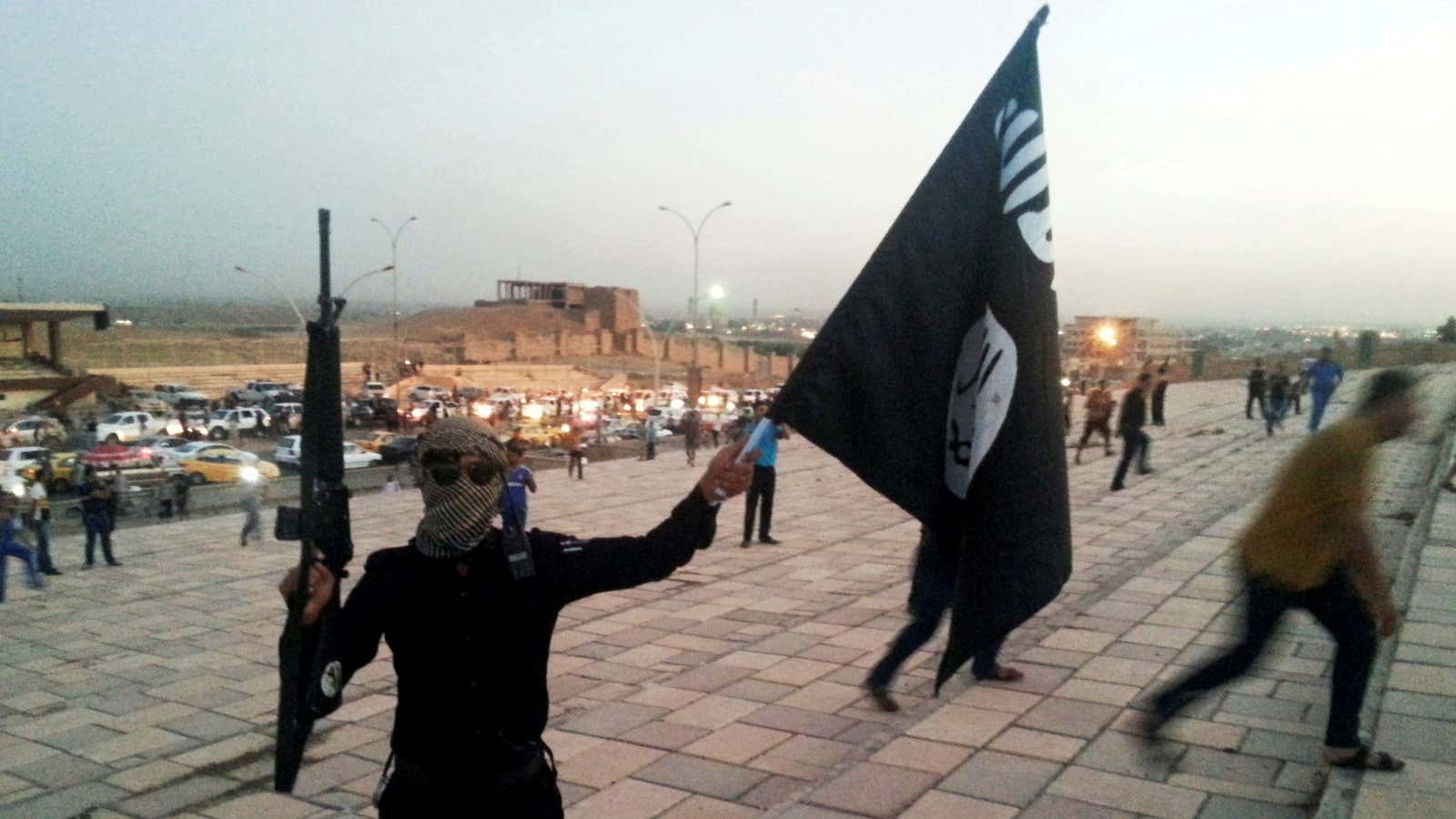ISIL’s recruitment of foreign fighters is a global phenomenon. Extremists from 86 countries have traveled to Syria and Iraq to fight for the terrorist group also known as the Islamic State or Daesh.
These recruits are well-educated and relatively wealthy, according to a recent report (pdf) by the World Bank. Researchers analyzed leaked data from disenfranchised former members, which was obtained by German intelligence. The 22,000 documents are questionnaires of each would-be recruit. It includes basic information—such as their name, level of education, and place of birth—on 3,803 foreign recruits who joined the terrorist group between 2013 and 2014.
The study found that 69% of recruits reported at least a secondary-level education and “a large fraction have gone on to study at university.” Only 15% of recruits left school before high school; less than 2% are illiterate.
The report then compared the education levels of recruits to the general population for ages 20-35 in each region of origin. Foreign fighters from Europe and in Central Asia have similar levels of education to their countrymen, while foreign recruits from the Middle East, North Africa, and South and East Asia are significantly more educated than what is typical in their home nations.
When asked what role they wanted in the so-called Islamic State, the proportions who pick administrators or suicide fighters increased with education. While the report paints a picture of the type of person who leaves home to fight for ISIL, researchers urge caution when interpreting their results as recruits self-reported their own educational levels.
The findings suggest that terrorism is not driven by poverty and low levels of education—and the report notes that is consistent with previous research. The report did, however, find “a strong association” between a country’s male unemployment rate and the propensity of the country to supply foreign fighters. The report calls on policymakers to promote job creation in their anti-terrorism strategy, and to target unemployment levels among the educated.
